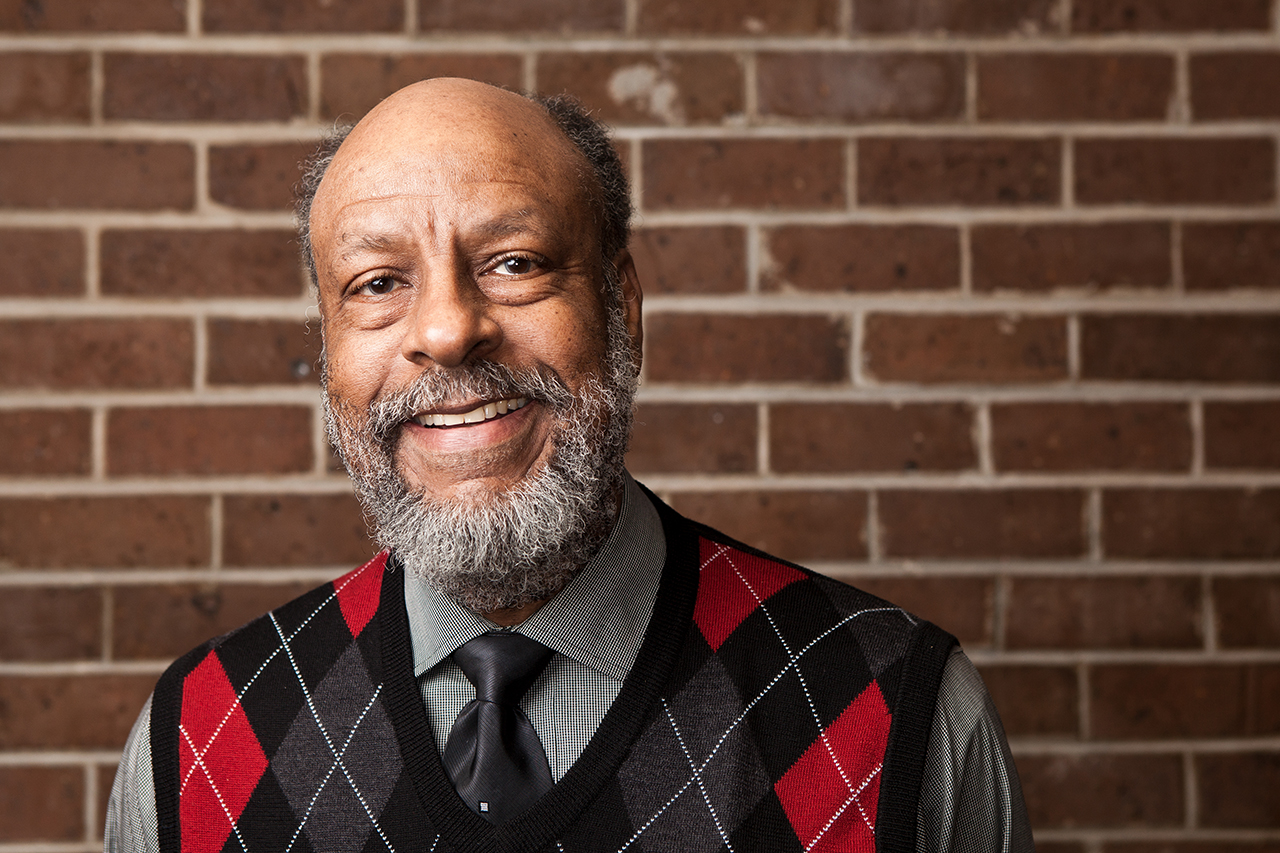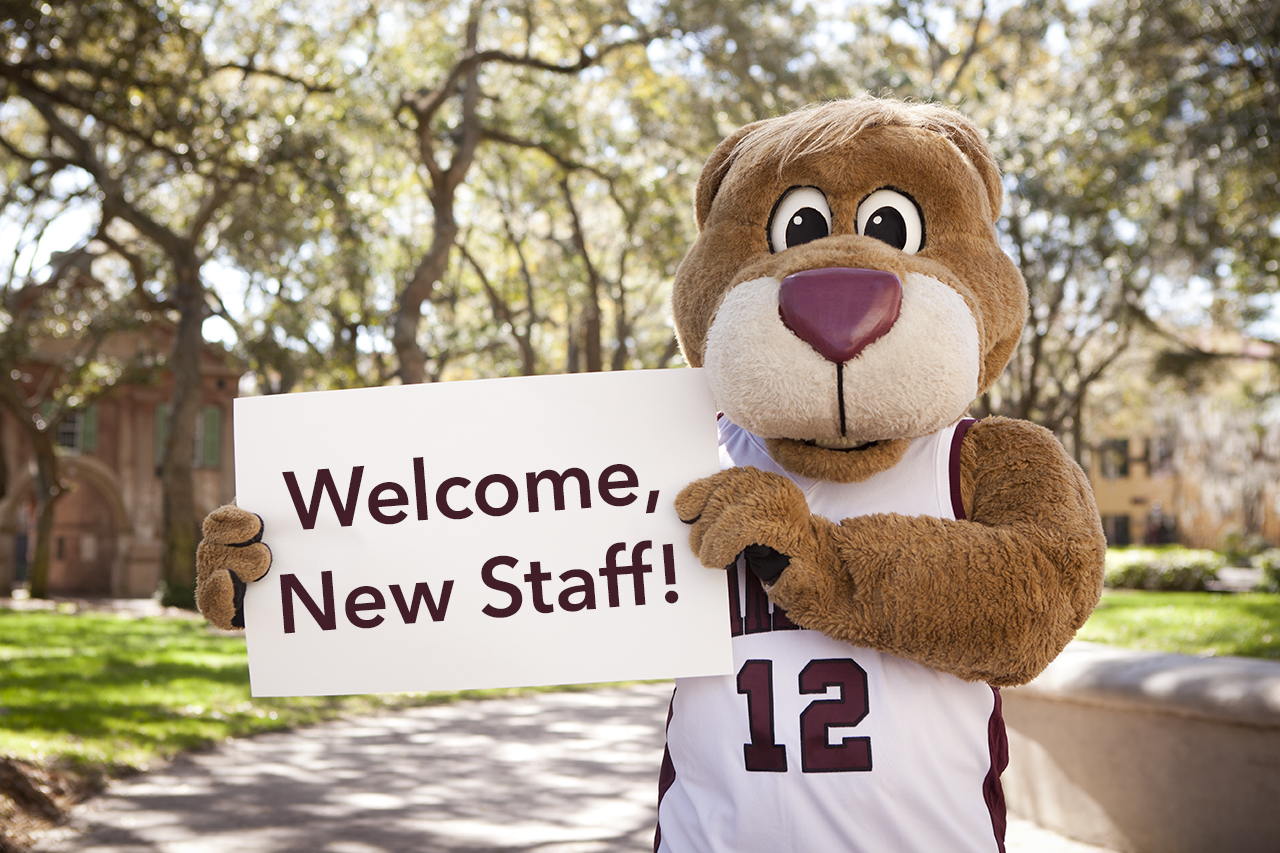Highlights From the Division of Student Affairs
Here is all the latest from the various units in the Division of Student Affairs!
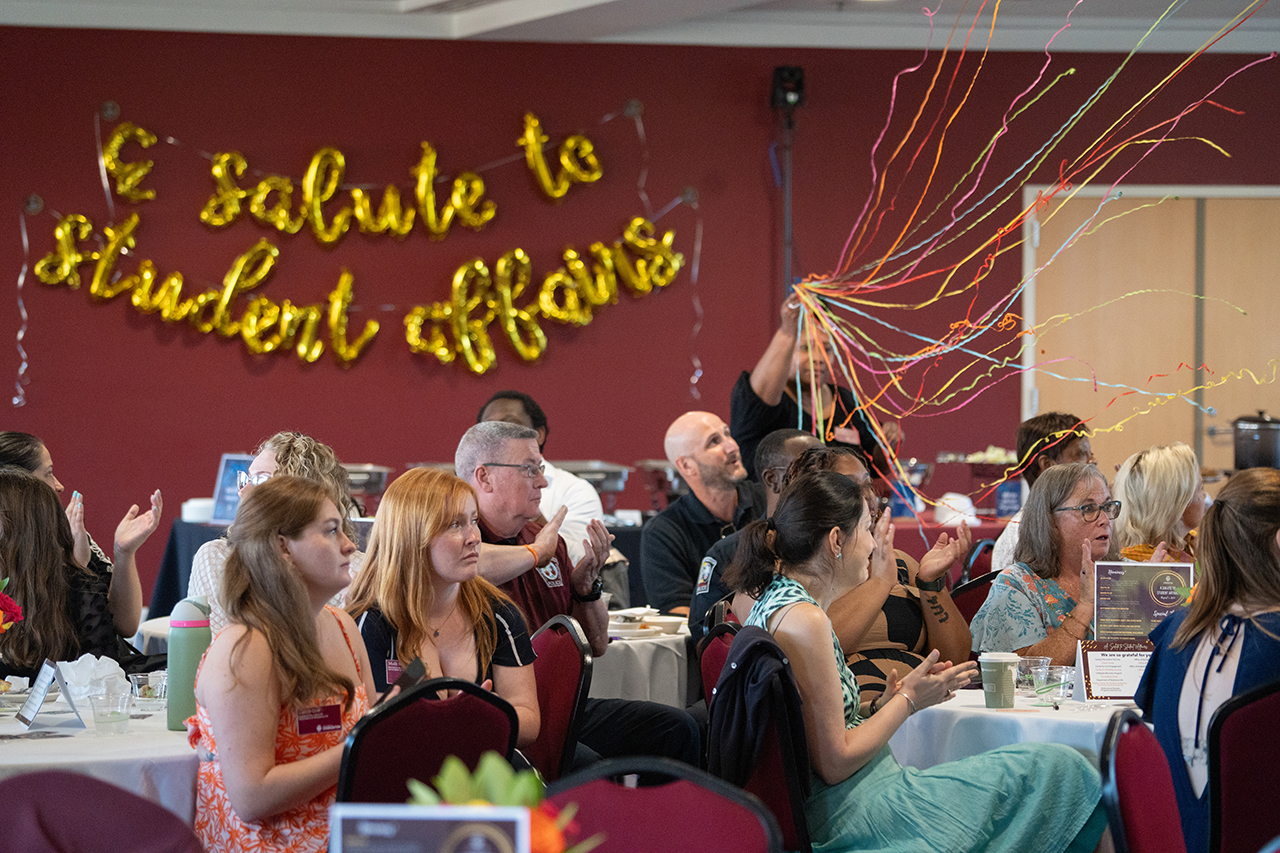
Above: Staff in the Division of Student Affairs recognized one another, focusing on gratitude and support, during the 15th annual Salute to Student Affairs awards program last August.
The Division of Student Affairs is dedicated to the development of all students and to facilitating their cultural, social, emotional, physical, ethical and intellectual development so they may become responsible, respectful and effective individuals.
Below are some of this academic year’s highlights from various units in the Division of Student Affairs.
Office of the Dean of Students
Late last fall, the College of Charleston launched 231-GoClyde (231-462-5933), a RealResponse anonymous texting tool to report misconduct (e.g., alleged Title IX or hazing violations) or to seek help and resources. This platform’s two-way, anonymous communication features enable the College to gather more information during investigations while promoting a community that cares and protects its students’ wellbeing. The College community has started to utilize it as a reporting tool for a wide range of issues or concerns, such as harassment, sexual misconduct, safety concerns, bullying, discrimination or any other type of misconduct or policy violation experienced or witnessed within the College of Charleston campus community. Once a report is submitted, the texter will receive a text back from the College to acknowledge the report and ask questions if additional information or clarification is needed. A case will then be created through the appropriate office on campus.
“There is a strong culture of reporting concerns, whether that would be through a F.A.S.T. Referral or via direct communication with the Office of the Dean of Students, and faculty and staff can encourage students or others who may be reluctant to share a concern directly this additional way to report, which allows us to follow up via encrypted text messaging while the reporter stays fully anonymous,” says Ann Almasi-Bush, dean of students, noting that, year to date, there have been 1,622 F.A.S.T. reports submitted – up from 1,346 reports at this point last year, a 20.5% increase. “I always like to highlight our partnership with the Academic Success and Retention Office in addressing F.A.S.T. concerns and to encourage community members to report and reach out to us in any way possible.”

During Homecoming weekend 2024, the College broke ground on the new home of the Edward J. Tuccio ’91 Student Success Center at 58 George Street. The Tuccio Center will become the new home of Career Center and Financial Wellness Initiative. It will serve as the go-to resource for internships, jobs, graduate school guidance and one-on-one counseling to discuss career development and visions for the future. Throughout the year, workshops and presentations will be held on everything from personal and professional development to financial planning.
On March 29, 2025, the Collegiate Recovery Program held its 10-Year Anniversary Celebration and Graduation Dinner, which celebrated nine graduates and was attended by the graduates’ families and the program’s donors and community and campus partners. The graduates shared how the CRP affected their recovery journey and their favorite things about the program, and one of the program’s founding students, Isaac Waters ’20, spoke about the history of the program and the growth he’s seen over the last 10 years.
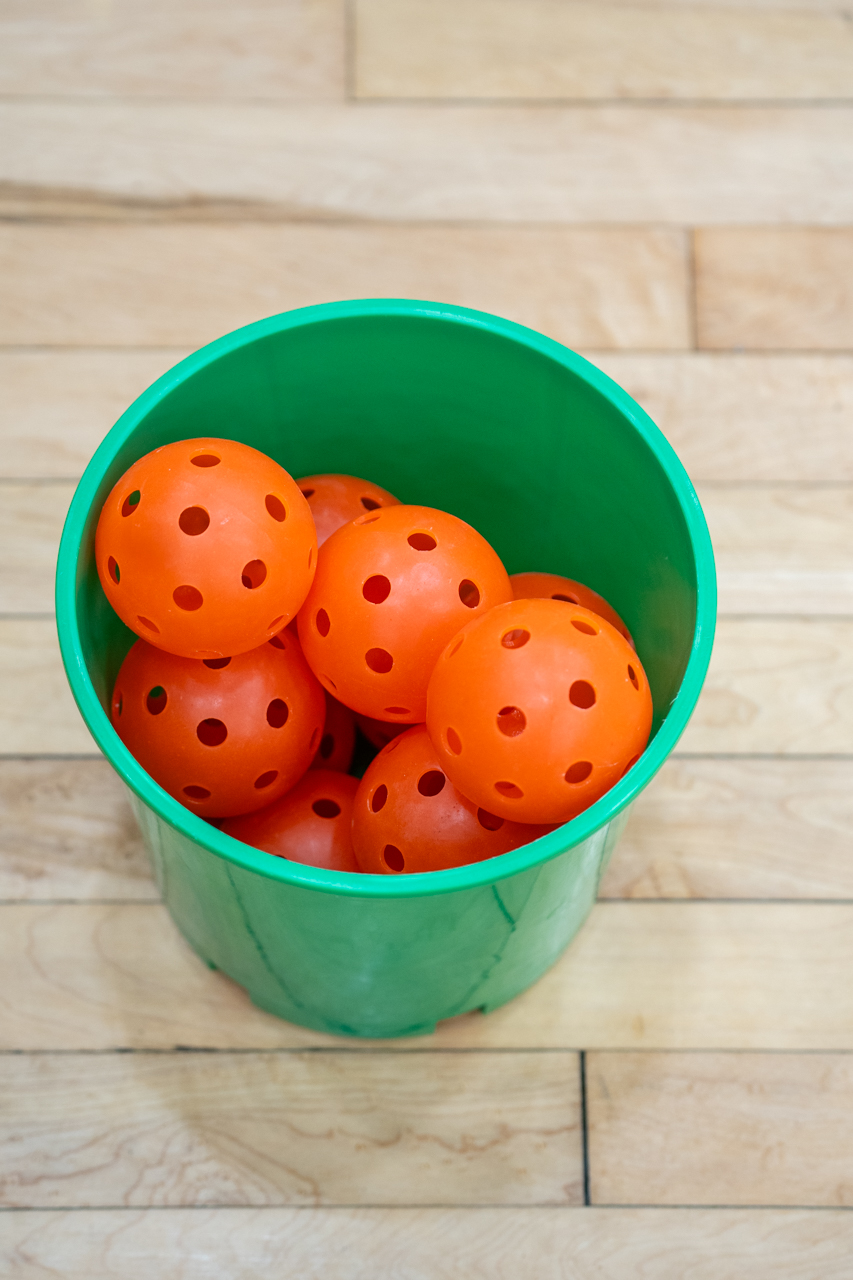
This year’s Bridge Run Training Program, a 10-week training plan for the Cooper River Bridge Run, helped a record-breaking 75 members of the CofC community “get over it.” Open to all levels of participants, from walkers to advanced runners, the training program begins in late January and concludes on race day.
The return of the George Street Fitness Center’s annual weight-lifting competition saw over 20 participants sign up to show off their strength. In an effort to win absolute and pound-for-pound champion titles, students had an hour to complete their heaviest bench press, squat and deadlift.
CRS added multiple new sport clubs this year, including the field hockey and pickleball. In other sports clubs’ news: Women’s lacrosse competed in their regional championship and beat the No. 2–ranked team in the country, Ole Miss; men’s volleyball traveled to Arizona to compete in the National Collegiate Volleyball Federation Championship; and men’s soccer traveled to Texas to compete in the NIRSA National Soccer Championship.
In intramural sports news: CRS added a new intramural pickleball program and saw record-breaking participation in the indoor soccer intramural league.
To ensure the safety of the campus community and prevent outbreaks of serious illness, new and transfer students are required to submit several vaccination records – a task that can often be difficult for international students, veterans and students who moved several times as a child. To create efficiency and decrease stress on incoming students who are already burdened with so many things, Student Health Services has upgraded to Verivax software, which allows out-of-state students to search and pull available immunization records from national databases. This has also alleviated the strain on SHS staff so that they can focus student care.
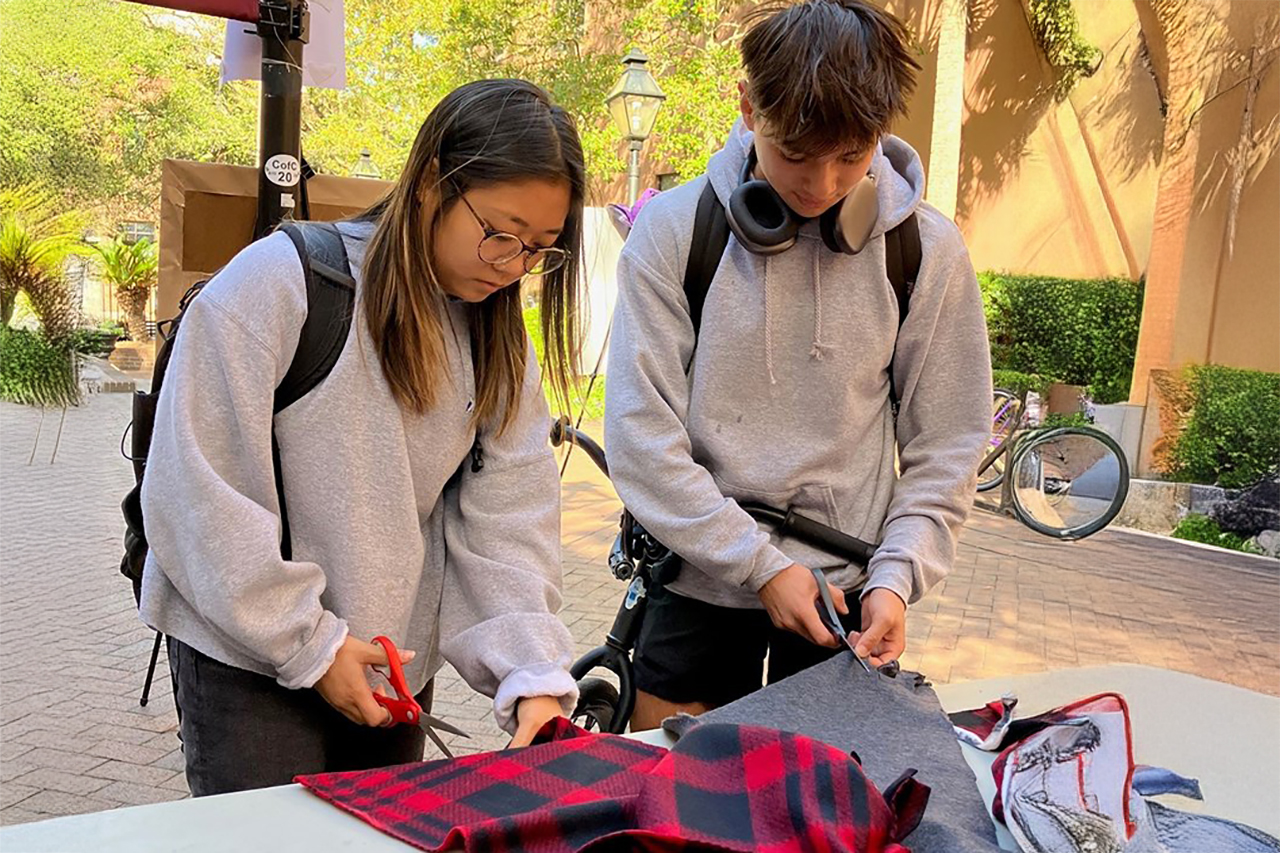
The Center for Civic Engagement launched its Healthy Democracy initiative during the fall semester, partnering with Cougar Votes, the Office of Mail Services and various community groups to host an array of election-education and voter-registration programs. Later, its collaboration with nearly 20 campus and community organizations to promote Hunger & Homelessness Awareness Week activities generated more than 1,400 student connections. In addition, CCE support throughout the year enabled students to work with dozens of local, national and international nonprofits, where they engaged in more than 14,000 hours of education, service and reflection.
This year, the 14 professional staff and over 120 student employees in the Department of Residence Life chose The L.E.A.G.U.E. (Leading with Empathy, Authenticity, Gratitude, Unity and Engagement) as its theme. With these values as the backbone, team members on all levels were able to connect deeply with and build strong communities across campus through one-on-one connections and programs.

